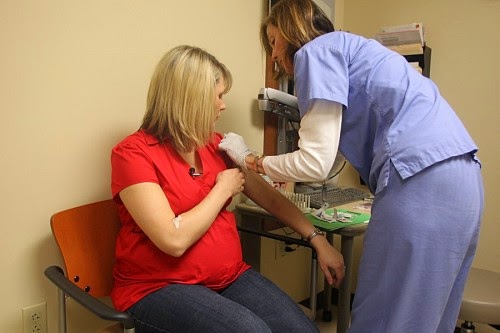Expectant mothers need to get a flu shot

Only the flu shot, not the nasal-spray vaccine, is recommended for pregnant women because it is made with the inactivated (killed) virus. Pregnant women should not receive the spray vaccine, which is made with live attenuated (weakened) virus, BabyCenter, an online parenting and pregnancy resource, writes.
The changes to a pregnant woman’s immune system, heart and lung function during pregnancy can make them even more sensitive to the flu, the CDC says.
Pregnant women have a harder time fighting off infections and are more likely to develop serious complications. They “are at a higher risk of hospitalization, and even death, than non-pregnant women,” the CDC says. A severe illness in a pregnant mother can cause premature labor and delivery of the fetus and fever in early pregnancy can lead to birth defects.
Getting a flu shot during your pregnancy will also offer some protection to your baby up to six months after he or she is born, when the baby can be vaccinated. Breastfeeding your baby will also offer some protection from the flu. Studies show that babies who are breastfed do not get as sick and are sick less often than babies who are not breastfed.
If you did not get a flu shot during pregnancy, the CDC recommends that you get one after you deliver. After the baby is born you can get the either the flu shot or the nasal spray, even if you are breastfeeding. The CDC also recommends that anyone who comes in contact with your baby get a flu shot.
The CDC says pregnant women with flu-like symptoms should contact their health care proider immediately, but should seek emergency care if they are experiencing any of the following:
- Difficulty breathing or shortness of breath
- Pain or pressure in the chest or abdomen
- Sudden dizziness
- Confusion
- Severe or persistent vomiting
- High fever
- Decreased or no movement by your baby
